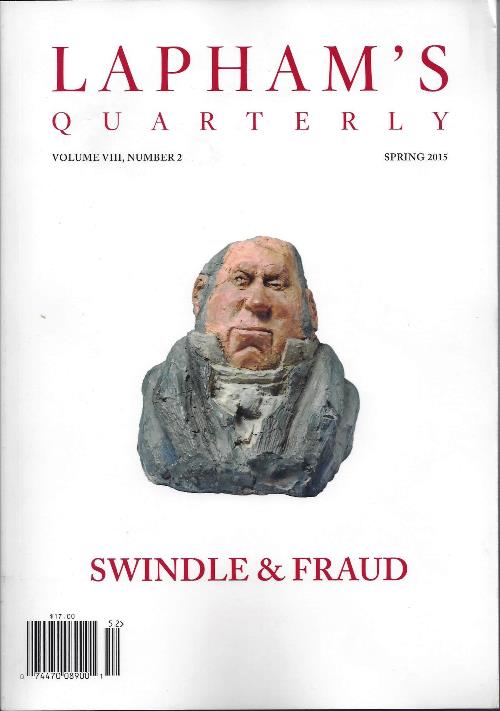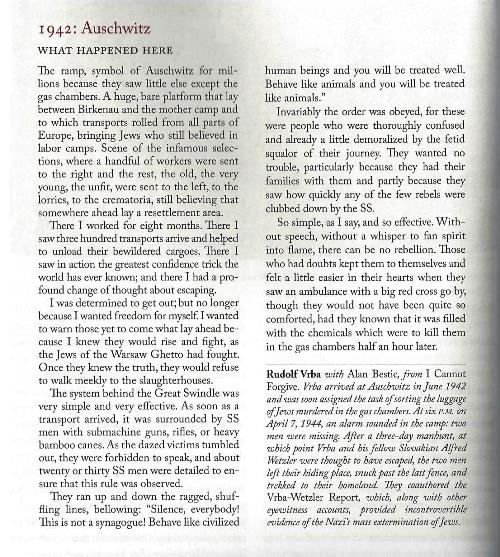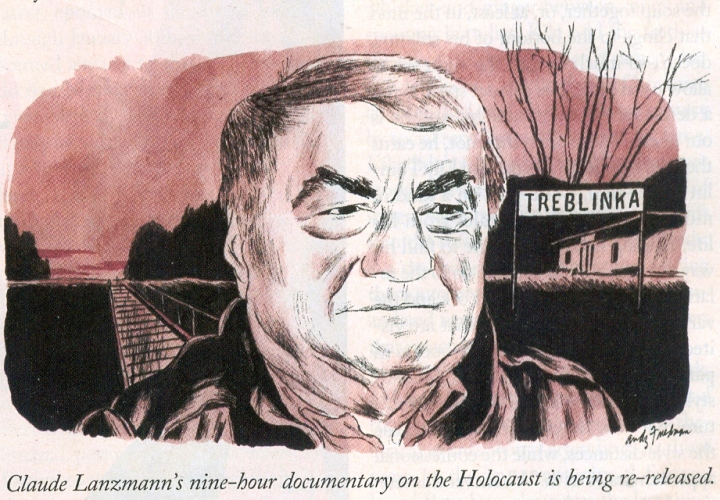 |
Bịp
 Grow your
tree of falsehood from a small grain of truth Dịch nhảm: Trồng
quả lừa 30 Tháng Tư 1975 từ cái hạt nho nhỏ sự thực. The most
common sort of lie is that by which a man deceives himself: the
deception of
others is relatively rare offence Vưỡn dịch nhảm:
Cái quả lừa lớn nhất là, lừa chính mình. Ba cái lừa khác, lẻ tẻ. 5 hrs
· NỔI GIẬN Lâu lắm rồi mới thấy người dân Hà Nội nổi giận một cách chính đáng như thế! Note: Chắc là
từ hồi Chống Mỹ Kíu Nước. THE WOLF AND
THE LAMB Gotcha-said
the wolf and yawned. The lamb turned its teary eyes to the wolf. -Do
you have
to eat me? Is that really necessary? Zbigniew Herbert: The Collected Poems 1956-1998 Hà, hà! Tóm được
mi rồi. Con chó sói lèm bèm và ngáp 1 phát
Cây làm sao
so với người được. Viết như thế, để hiểu cơn giận dữ khủng khiếp của
người Hà Nội,
khi nghe tin Diệm và bè lũ bán nước đầu độc tù Phú Lợi. Gấu quên
béng vụ này. Lần gặp Nguyễn Quốc Thái, ông Trùm tờ Trình Bày, Bắc Kít
di cư,
cũng chống Mỹ Diệm như điên, ở nhà họa sĩ NDT, Tiểu Xề Gòn, không biết
tên nào,
trong hai tên, nhắc tới Phú Lợi, và anh kể ra là có 1 phóng viên VC
thắc mắc về
vụ này [anh nói tên tay này, mà Gấu quên mất], theo cái kiểu truy tìm
sự thực lịch
sử cuộc chiến Mít, của tên tà lọt Osin. Bịa ra cú Phú Lợi, để thành lập MTGP. Mẽo hoảng quá, đổ quân vô. Thế là gây nên bao nhiêu tội ác, trời không dung, đất không tha. Bây giờ lại năn nỉ Mỹ trở lại. Đừng chạy
theo con chó sói VC. Đừng hy sinh, đừng nhỏ máu đầu ngón tay, vì 1 cú
bịp bợm. 1942:
Auschwitz WHAT
HAPPENED HERE The ramp,
symbol of Auschwitz for millions because they saw little else except
the gas
chambers. A huge, bare platform that lay between Birkenau and the
mother amp
and to which transports rolled from all parts of Europe, bringing Jews
who
still believed in labor camps. Scene of the infamous selections, where
a
handful of workers were sent to the right and the rest, the old, the
very young,
the unfit, were sent to the left, to the lorries, to the crematoria,
still
believing that somewhere ahead lay a resettlement area. There I worked for eight
months. There I saw three hundred
transports arrive and helped to unload their bewildered cargoes. There
I saw in
action the greatest confidence trick the world has ever known; and
there I had
a profound change of thought about escaping. I was determined to get
out; but no longer because I wanted
freedom for myself. I wanted to warn those yet to come what lay ahead
because I
knew they would rise and fight, as the Jews of the Warsaw Ghetto had
fought. Once
they knew the truth, they would refuse to walk meekly to the
slaughterhouses. The system behind the
Great Swindle was very simple and very
effective. As soon as a transport arrived, it was surrounded by SS men
with
submachine guns, rifles, or heavy bamboo canes. As the dazed victims
tumbled out,
they were forbidden to speak, and about twenty or thirty SS men were
detailed
to ensure that this rule was observed. They ran up and down the
ragged, shuffling lines, bellowing:
"Silence, everybody! This is not a synagogue! Behave like civilized
human
beings and you will be treated well. Behave like animals and you will
be
treated like animals." Invariably the order was
obeyed, for these were people who
were thoroughly confused and already a little demoralized by the fetid
squalor
of their journey. They wanted no trouble, particularly because they had
their families
with them and partly because they saw how quickly any of the few rebels
were clubbed
down by the SS. So simple, as I say, and
so effective. Without speech,
without a whisper to fan spirit into flame, there can be no rebellion.
Those who
had doubts kept them to themselves and felt a little easier in their
hearts
when they saw an ambulance with a big red cross go by, though they
would not
have been quite so comforted, had they known that it was filled with
the
chemicals which were to kill them in the gas chambers half an hour
later. Rudolf
Vrba
with Alan Bestic, from I Cannot Forgive.
Vrba arrived at Auschwitz in June 1942 and was soon assigned the task
of
sorting the luggage of Jews murdered in the gas chambers. At six P.M.
on April
7, 1944, an alarm sounded in the camp: two men were missing. After a
three-day
manhunt, at which point Vrba and his fellow Slovakian Alfred Wetzler
were
thought to have escaped, the two men left their hiding place, snuck
past the
last fence, and trekked to their homeland. They coauthored the Vrba-Wetzler
Report,
which, along with other eyewitness accounts, provided incontrovertible
evidence
if the Nazi's mass extermination of Jews. Đọc bài viết,
thì lại nghĩ đến cú bịp của VC: Y chang! Khi “Shoah”
ra lò vào năm 1958, nó lập tức biến thành lịch sử. Tông
tông Pháp lúc đó, Francois
Mitterrand đi coi ngày đầu
chiếu. Nhà cầm quyền Ba Lan đề nghị cấm. Gorbachev ra lệnh, chỉ một vài
lần chiếu
cho công chúng coi, ở Liên Xô, vào năm 1989. Vaclav Havel coi ở trong
nhà tù
Czechoslovak. Lanzmann gọi
"Shoah", một “giả tưởng về sự thực” và nói, ông
tưởng tượng ra mình, như là cái đầu và như là linh hồn, của cả hai
đấng, kẻ giết
người và nạn nhân. Vào lúc trình làng cuốn
phim, ông phán, “Tôi cực kỳ tin nghệ thuật và đạo đức đồng nhất, là
một.
Tôi không làm phim tài liệu mà là một phim thực, và tôi muốn phim
thực này thì
tuyệt là đẹp”, và làm bật ra cái gọi là “cái đếch chịu được thì chịu
được”: "make the unbearable bearable."
What he doesn't emphasize (he says it in passing) is that Hitler's war against the Jews was an attempt to eliminate an entire people-to efface their identity altogether-whereas Stalin's campaign against, say, Ukraine was an attempt to eliminate not all Ukrainians but those who conceivably might resist collectivization and the triumph of Communism. Điều ông không
nhấn mạnh là cuộc chiến của Hitler chống lại Do Thái, là toan tính làm
cỏ cả một dân tộc – xóa sạch căn cước của 1 giống dân – trong khi cuộc
chiến dịch của
Stalin chống lại Ukraine là toan tính làm cỏ không phải toàn thể dân Ukraine
mà là
những người chống lại tập thể hóa, và chiến thắng của Chủ Nghĩa Cộng
Sản. Khi đám VC Bắc Kít thắng
cuộc chiến, và đẩy đám sĩ quan Ngụy lên
miền rừng thiêng nước độc Bắc Bắc Việt, và chiến dịch tiếp theo, sẽ đưa
hết đám
vợ con Ngụy lên đó, chẳng phải là để xóa sạch tất cả đám Ngụy, "một
nửa" giống dân
Mít?  Bịp Bịp thì
phong nhã hơn là thuổng Cách ngôn Đức Chúng ta bịp
con nít bằng hột xúc xắc, bịp người lớn bằng lời thề dưới ánh sáng của
Đảng Lysander,
c.407BC Chính cái
tên Cù Lần mà tôi lừa dối hoài hoài là kẻ tôi yêu thương hoài hoài Marguerite
Duras, 1987 Đàn ông sinh
ra là để nói dối, vì đó là phần số của họ. Còn đàn bà, để tin họ. John Gay,
1728 Bạn có thể
chắp cánh cho 1 con heo, nhưng chớ có biến nó thành con chim ưng  1942:
Auschwitz WHAT
HAPPENED HERE The ramp,
symbol of Auschwitz for millions because they saw little else except
the gas
chambers. A huge, bare platform that lay between Birkenau and the
mother amp
and to which transports rolled from all parts of Europe, bringing Jews
who
still believed in labor camps. Scene of the infamous selections, where
a
handful of workers were sent to the right and the rest, the old, the
very young,
the unfit, were sent to the left, to the lorries, to the crematoria,
still
believing that somewhere ahead lay a resettlement area. There I worked for eight
months. There I saw three hundred
transports arrive and helped to unload their bewildered cargoes. There
I saw in
action the greatest confidence trick the world has ever known; and
there I had
a profound change of thought about escaping. I was determined to get
out; but no longer because I wanted
freedom for myself. I wanted to warn those yet to come what lay ahead
because I
knew they would rise and fight, as the Jews of the Warsaw Ghetto had
fought. Once
they knew the truth, they would refuse to walk meekly to the
slaughterhouses. The system behind the
Great Swindle was very simple and very
effective. As soon as a transport arrived, it was surrounded by SS men
with
submachine guns, rifles, or heavy bamboo canes. As the dazed victims
tumbled out,
they were forbidden to speak, and about twenty or thirty SS men were
detailed
to ensure that this rule was observed. They ran up and down the
ragged, shuffling lines, bellowing:
"Silence, everybody! This is not a synagogue! Behave like civilized
human
beings and you will be treated well. Behave like animals and you will
be
treated like animals." Invariably the order was
obeyed, for these were people who
were thoroughly confused and already a little demoralized by the fetid
squalor
of their journey. They wanted no trouble, particularly because they had
their families
with them and partly because they saw how quickly any of the few rebels
were clubbed
down by the SS. So simple, as I say, and
so effective. Without speech,
without a whisper to fan spirit into flame, there can be no rebellion.
Those who
had doubts kept them to themselves and felt a little easier in their
hearts
when they saw an ambulance with a big red cross go by, though they
would not
have been quite so comforted, had they known that it was filled with
the
chemicals which were to kill them in the gas chambers half an hour
later. Rudolf
Vrba
with Alan Bestic, from I Cannot Forgive.
Vrba arrived at Auschwitz in June 1942 and was soon assigned the task
of
sorting the luggage of Jews murdered in the gas chambers. At six P.M.
on April
7, 1944, an alarm sounded in the camp: two men were missing. After a
three-day
manhunt, at which point Vrba and his fellow Slovakian Alfred Wetzler
were
thought to have escaped, the two men left their hiding place, snuck
past the
last fence, and trekked to their homeland. They coauthored the Vrba-Wetzler
Report,
which, along with other eyewitness accounts, provided incontrovertible
evidence
if the Nazi's mass extermination of Jews. Đọc bài viết,
thì lại nghĩ đến cú bịp của VC: Y chang!
|
